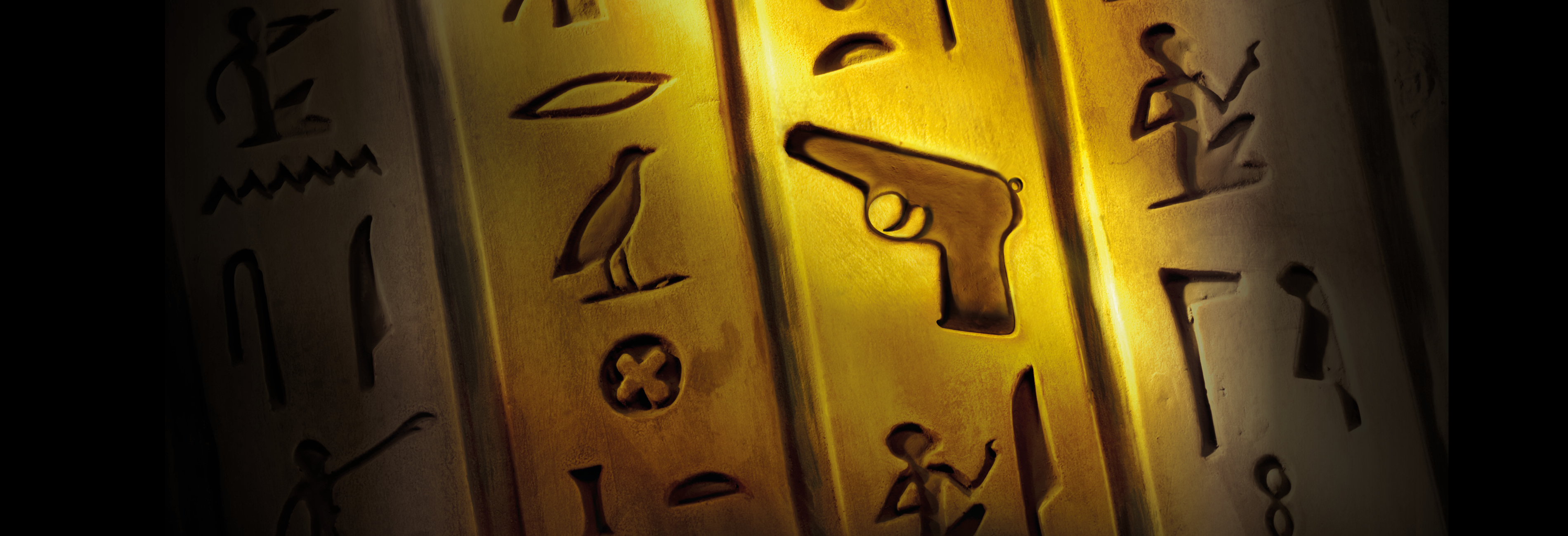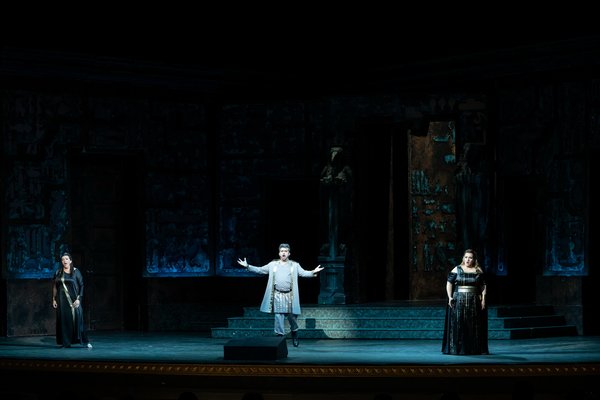
AIDA
In Brief
Opera in three parts, four acts, in Italian, with Hungarian, English, and Italian subtitles
The vulnerable protagonists of Aida face an agonising moral dilemma: to what should they be loyal? To their homelands? To their families? Or to their love?
The story of the opera is a product of war: not only in its writing, but on the stage as well. The sounds of war resonate throughout the tale of the captive Ethiopian princess and king, and the Egyptian commander brought down by and for love. Although Egypt wins a pyrrhic victory, this triumph desired by so many brings ruin to all who wished for it.
This is a story about war, a topic as old as man and which will continue as long as our species. War chooses life or death for millions, divides families and lovers, and permeates warring countries and their people of every order and rank, from pharaoh to slave.
The story of the opera is a product of war: not only in its writing, but on the stage as well. The sounds of war resonate throughout the tale of the captive Ethiopian princess and king, and the Egyptian commander brought down by and for love. Although Egypt wins a pyrrhic victory, this triumph desired by so many brings ruin to all who wished for it.
This is a story about war, a topic as old as man and which will continue as long as our species. War chooses life or death for millions, divides families and lovers, and permeates warring countries and their people of every order and rank, from pharaoh to slave.
But there is one thing that can never be vanquished: the purity of the soul.
Synopsis
Act I
The Ethiopian princess Aida is being held captive in Egypt, although no one knows of her royal origins. Also kept secret is the love between Aida and Ramadès, the young Egyptian military commander.
The high priest announces that the Ethiopians have attacked Egypt again and informs Radamès that Isis has named him to lead the Egyptian forces. Amneris, the pharaoh's daughter, is also in love with Radamès and hopes that if the young general returns victorious, he will marry her. Radamès, however, nourishes the hope that if he wins a victory, he will be able to marry his secret love, Aida, who herself is confronted with the choice of whose victory she should pray for: her lover's or that of her father and her homeland?
Act II
Aida's father attacks Egypt in order to free his daughter, but suffers a defeat. Radamès returns home victorious with Aida's father among the captured soldiers. The pharaoh announces that he will reward Radamès by granting any request of his. The general asks for the Ethiopian prisoners to be set free, but the high priest obstructs this. The pharaoh offers his daughter, and his throne, to Radamès.
Act III
Under cover of night, Aida awaits Radamès, who had invited her to a secret meeting on the bank of the Nile. The princess feels her situation to be hopeless: her beloved is getting ready to marry the pharaoh's daughter, and she cannot return home. Suddenly, her father appears and pressures her mercilessly: he knows that her lover is the enemy's general, and he orders her to lead Radamès into committing treason.
Trusting Aida, Radamès betrays secret military information, at which point Amonasro rushes out and reveals to Radamès that he is the king of Ethiopia.
The jealous Amneris also bursts forth with her entourage, but before she can have the treasonous general arrested, Radamès succeeds in ensuring the escape of both Aida and her father.
Act IV
The despairing Amneris tries to save the life of the man she loves and who has been condemned to death because of her, but Radamès has no wish to live without Aida. The death sentence is carried out, and Radamès is sealed alive in a crypt. In the silent tomb, Aida emerges from her hiding place in order to die together with her love.
Gallery
Reviews
“The set and décor imagined by Zsolt Khell are colourful and majestic. The artist succeeded in uniting overwhelming historicism and exoticism with the minimalistic design that is fashionable today. The modern context appears in certain places, but only where it was relevant and without overdoing it.”
Jan Falk, Opera News
